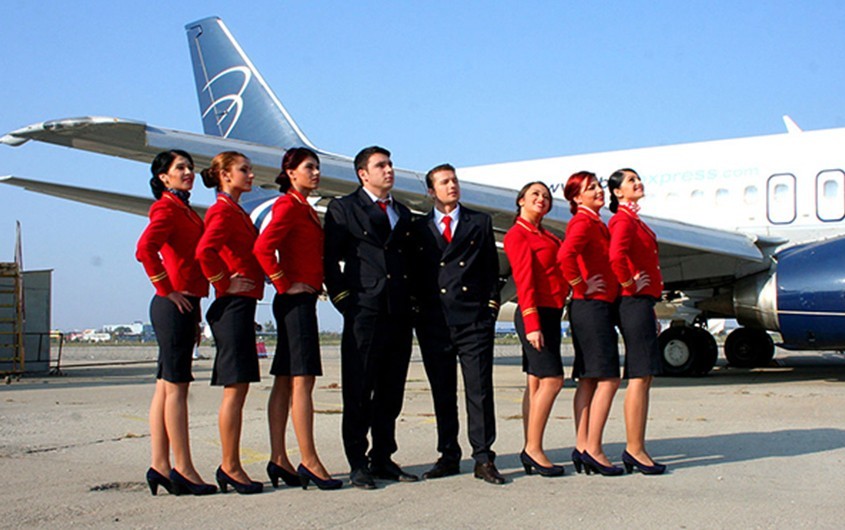
The dynamic operations of the Aviation industry greatly depend on the excellent customer service provided by airport management. In this area, there is always a demand for qualified workers, thus enrolling in an aviation school specifically designed for air hostesses might lead to new job chances. This article examines the nuances of aviation programs intended for passenger service roles and how they might assist individuals in beginning a prosperous career in the aviation sector.
A Distance Airport Management Course in Aviation is designed to provide individuals with the knowledge and skills necessary to pursue a career in airport management while offering the flexibility of remote learning. Here's an overview of what such a course might entail. Airport management encompasses a wide range of responsibilities aimed at ensuring the efficient and safe operation of an airport facility. Here are some key responsibilities of airport management:
1. Infrastructure Management.
Overseeing the maintenance, development, and expansion of airport infrastructure, including runways, taxiways, aprons, terminals, and parking facilities.
Planning and executing construction projects to accommodate increasing passenger traffic and evolving aviation needs.
2. Safety and Security.
Implementing and enforcing safety and security protocols to protect passengers, aircraft, and airport personnel.
Collaborating with regulatory agencies and law enforcement to ensure compliance with aviation security regulations and mitigate security risks.
3. Regulatory Compliance.
Ensuring compliance with international, national, and local aviation regulations, including safety standards, environmental regulations, and operational requirements.
Maintaining certifications and licenses required for airport operation and adhering to guidelines set by aviation authorities.
4. Air Traffic Management.
Coordinating air traffic movements, including arrivals, departures, and ground operations, to optimise airspace utilisation and minimise delays.
Collaborating with air traffic control agencies and airlines to manage air traffic flow and ensure safe and efficient aircraft movements.
5. Passenger Services.
Providing a range of passenger services to enhance the travel experience, including check-in, baggage handling, security screening, immigration, and customs clearance.
Ensuring the availability of amenities such as lounges, retail outlets, restaurants, and transportation services to meet passenger needs.
6. Customer Experience.
Focusing on delivering a positive and seamless passenger experience by maintaining cleanliness, comfort, and accessibility throughout the airport facility.
Implementing customer service initiatives and feedback mechanisms to address passenger concerns and enhance satisfaction.
7. Commercial Operations.
Managing commercial activities such as retail concessions, advertising, parking, and rental agreements to generate revenue and maximise profitability.
Developing marketing strategies to attract airlines, passengers, and business partners to the airport.
8. Environmental Sustainability.
Implementing environmentally sustainable practices to minimise the airport's ecological footprint and mitigate environmental impacts.
Initiating initiatives such as waste management, energy efficiency, emissions reduction, and noise abatement to promote environmental stewardship.
9. Emergency Preparedness.
Developing and implementing emergency response plans to address various scenarios, including aircraft accidents, natural disasters, security incidents, and medical emergencies.
Conducting regular drills and training exercises to ensure the readiness of airport staff and emergency responders.
10. Stakeholder Engagement.
Building and maintaining relationships with stakeholders, including airlines, government agencies, local communities, business partners, and airport tenants.
Collaborating with stakeholders to address concerns, facilitate communication, and promote cooperation in achieving shared objectives.
Aviation courses for airport management are designed to equip individuals with the knowledge and skills required to oversee the efficient and effective operation of airports. Here are some common aviation courses tailored for airport management:
Examines environmental challenges facing airports, such as noise pollution, emissions, and waste management.
Covers sustainable practices, green initiatives, and environmental management systems to minimise the ecological footprint of airport operations.
Explores sustainability strategies, renewable energy solutions, and community engagement in promoting environmental stewardship.
Covers topics such as passenger self-service technologies, biometrics, and real-time data analytics for enhancing airport efficiency and passenger experience.
Examines the integration of technology solutions for security, safety, operations, and customer service in airport management.
Explores partnership opportunities, negotiation skills, and customer relationship management in the aviation industry.
Provides an overview of airport management principles, functions, and organisational structure.
Covers topics such as airport planning, development, infrastructure management, and regulatory compliance.
Leadership and Management Opportunities:- Airport management courses emphasise leadership, strategic planning, and organisational management skills. Graduates are equipped to lead airport teams, coordinate diverse activities, and make informed decisions to achieve operational excellence.
Personal and Professional Growth:- Pursuing an airport management course offers opportunities for personal and professional growth. Graduates develop problem-solving abilities, communication skills, and decision-making capabilities essential for career advancement in the aviation industry.
Global Networking and Collaboration:- Airport management courses often attract students from diverse backgrounds and nationalities, providing opportunities for networking and collaboration. Students interact with industry professionals, guest speakers, and fellow students, building valuable connections in the aviation community.
Contribution to Aviation Infrastructure:- Airport managers play a crucial role in enhancing aviation infrastructure and contributing to the economic development of their regions. They oversee airport expansion projects, infrastructure upgrades, and service improvements to meet the growing demands of air travel.
Innovation and Sustainability Initiatives:- Airport management courses explore innovative technologies and sustainable practices aimed at improving airport efficiency and reducing environmental impact. Graduates can contribute to the implementation of green initiatives and sustainable development strategies in airport operations.
Job Satisfaction and Fulfillment:- Managing an airport is a challenging and rewarding career path that offers opportunities to make a meaningful impact on the aviation industry. Airport managers play a vital role in ensuring safe, efficient, and customer-friendly airport operations, contributing to passenger satisfaction and overall industry success.
These aviation courses for airport management provide comprehensive training and education to individuals aspiring to pursue careers in airport management, aviation consultancy, or related fields. The courses cover a wide range of topics essential for effective airport management, including planning, finance, regulations, security, marketing, technology, and sustainability.
pursuing an Airport Management Course in the aviation industry provides a pathway to a rewarding career with diverse opportunities for personal and professional growth. Graduates gain industry-relevant skills, leadership capabilities, and the knowledge needed to excel in managing airport facilities and contributing to the success of the aviation sector.